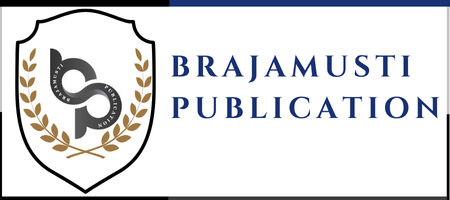Focus and scope
Aim. The Journal of Islamic Mubādalah aims to advance scholarly discourse on human equality by promoting the theoretical and practical contributions of the mubādalah concept a paradigm that emphasizes balanced human relations, equitable partnership, reciprocity, and collaboration. The journal provides an interdisciplinary platform for examining how Islamic ethical principles and the mubādalah framework can address contemporary challenges related to gender roles, family systems, legal structures, and socio-cultural dynamics across diverse global contexts. Its primary objective is to foster rigorous academic research that upholds human dignity, ensures equal participation, and promotes collaborative development at national and international levels. This mission contributes to strengthening just and equitable human relations in alignment with the United Nations Sustainable Development Goals (SDGs).
Subject Category. This journal is situated within the fields of Islamic Studies, Gender Studies, Social Sciences, and Human Rights Studies. Core themes include mubādalah theory, gender equality, Islamic ethics, and social justice, reflecting a commitment to advancing global scholarly understanding of equitable human relations.
Scope. The journal accepts high-quality academic articles focusing on issues of human inequality, including gender role disparities within religious, familial, legal, economic, and local cultural contexts. It particularly encourages comparative studies across Asia, Europe, Africa, and North America to explore regional manifestations of equality and social justice. Asian contexts often reveal tensions between tradition and reform; Europe presents progressive legal frameworks and challenges of multiculturalism; Africa situates equality within post-colonial and communal systems; North America frames equality through civil rights perspectives and identity pluralism. Cross-regional analyses are highly valued for highlighting convergences and divergences in the implementation of equality. All submissions must employ mubādalah as an analytical lens to illuminate reciprocal human relationships.
Focus
- Cross-regional comparative studies in Asia, Europe, Africa, and North America address issues of equality and social justice. a. Asia reflects tensions between social traditions and equality reforms; b). Europe presents progressive legal frameworks and the challenges of multiculturalism; c). Africa situates equality within post-colonial contexts and communal social systems; d). North America frames equality through the perspective of civil rights and identity pluralism; e). A global comparative analysis highlights patterns of convergence and divergence in the implementation of equality.
- Religious Interpretation Impacts Injustice in the Family: a). Inequality between men and women due to the influence of religious texts (misogynistic verses); b). A religious interpretation that places men as leaders and women as subordinates; c). Differences between men and women in following certain rituals and worship; d). Unbalanced roles between husband and wife in the household; e). Implementation of mubadalah as a pillar of family resilience; f). Differences between men and women in choosing a life partner, inheritance distribution and property rights.
- Inequality in Legal Regulations: a). Differences between men and women in the right to equality before the law; b). Lack of access, process and legal protection for women: c). Legal provisions that discriminate against women's human rights; d). Legal provisions that grant privileges to certain groups; e). Lack of digital legal protection for women; f). Women's inequality in legal structures.
- Inequality in Local Traditions and Customs of the Community: a). Differences in the roles of men and women in local culture and traditions; b). Indigenous community regulations that discriminate against women's rights; c). Limitation of women in making cultural decisions; d). Restrictions on women in following certain traditions; e). Lack of recognition of women's contributions to cultural preservation; f). Inequality between men and women in customary marriage
- Inequality in Economic Development: a). Differences between men and women in economic development opportunities; b). Discrimination in hiring and promotion; c). Salary difference for the same job; d). Lack of job opportunities in strategic positions; e). Salary differences between men and women; f). Differences in allowances and social benefits and differences in opportunities for career promotion.
- Social Inequality and Leadership: a). Patriarchy in social structures, labeling (stereotypes) and marginalization of women; b). Differences in opportunities, rights and treatment between men and women in access, services and health policies: c). Women and power in decision making; d). Lack of female representation in parliament and government; e). The stereotype of women being incompetent in politics; f). Women's participation and leadership in the regions.








